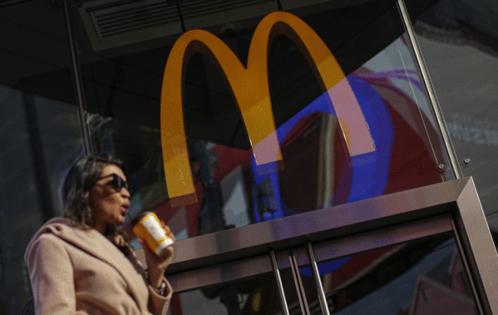Editorial: Wait. Those McDonald's combo meals weren't extra value after all?
Published in Op Eds
As fans of the Golden Arches, we recall the days when any rational person craving a Quarter Pounder did a little math in their heads (we’re talking pre-phones, folks), figured out the drink would be almost free if they got the fries and went with the combo instead of the “sandwich only” option on what was then a pretty simple menu board.
Jake from State Farm didn’t invent bundling; McDonald’s got there when Jake was just a kid. And Ronald’s bosses made bank, given that sodas cost fast-food restaurants like the Chicago-based giant and its franchisees little more than the price of the cup and the lid.
So we’ve been stunned to see the flap these last few days between McDonald’s and its franchisees over the need to actually offer customers extra value (aka a bundling deal) from those combo meals.
We thought they had been much cheaper all along; apparently we were deceived, even to the point where McDonald’s CEO Chris Kempczinski actually made flattering headlines by insisting that franchisees offer a 15% discount on a meal deal, which is a much smaller discount than we thought we had been getting on our favorite combos since the 1980s. Said franchisees were so appalled that Kempczinski even had to promise to cover some of their losses.
Where were the hard-hitting journalists asking the question of both church and state: You mean you quietly reduced those discounts years ago and just counted on no one noticing?
The McDonald’s menu board is one fascinating thing. Price discrimination (getting rich people to pay more for much the same thing) is all the rage these days and, over time, McDonald’s quietly shunted the price-conscious customers to its bottom-right “Value Menu,” now “McValue Menu,” letting those who don’t seek out a deal, or who don’t care enough to pay attention, make pricier selections, even as part of a combo. It’s all exhausting, especially since you can’t count on the deals being available, say, at O’Hare International Airport, where even the bags of fries appear reduced in size.
It’s hard for fast-food eateries to price discriminate, although they sure try. Kempczinski’s latest push for an advantage, or what he claims is a level playing field, is to oppose the subminimum wage provided for workers who earn tips. This has been cloaked in some McNonsense about treating tipped workers well, but the real motivation is clearly that McDonald’s workers don’t get tips (with rare exceptions) and the subminimum wage allows some low-cost sit-down restaurants with tipped workers to compete on price with the Golden Arches, at least before tips are taken into account.
Kempczinski also sees another pesky problem coming his way: President Donald Trump’s no-tax-on-tips initiative, always a bad idea, will help McDonald’s staffers not at all and likely force franchisees to pay more to compete for workers. Progressive advocates have grabbed onto McDonald’s position like the fast-food giant is an ally, rather than a huge corporation acting in its own self-interest, even if it puts the independent taco joint down the street out of business.
Of course, Kempczinski also could install those dreaded flippable screens to get McDonald’s customers to tip, but no doubt he fears a backlash.
It’s no secret the restaurant industry as a whole is struggling in this inflationary era. Eateries compete against each other, obviously, but they also cooperate when various policies threaten the industry at large. Look no further than the Illinois Restaurant Association’s continued attempts to curb the most deleterious aspects of Chicago’s gradual elimination of the subminimum wage.
So it’s bad form in our view for McDonald’s to attempt to kneecap its competitors in this way. This is a precarious time for restaurants and now they’re having to fend off policy attacks from the nation’s largest fast-food chain in addition to the Brandon Johnsons of the world.
As for McDonald’s itself, we’d prefer to see a simplified menu board that offered quality food at a fair price to everyone, with transparent bundling discounts. We’d also be fine with a ban on restaurant tipping entirely and workers being paid a just wage, but nobody in the restaurant industry desires that because owners want to keep entree prices low, and servers know tips can be very lucrative.
Nobody except for fast-food chains, anyway.
___
©2025 Chicago Tribune. Visit at chicagotribune.com. Distributed by Tribune Content Agency, LLC.
























































Comments